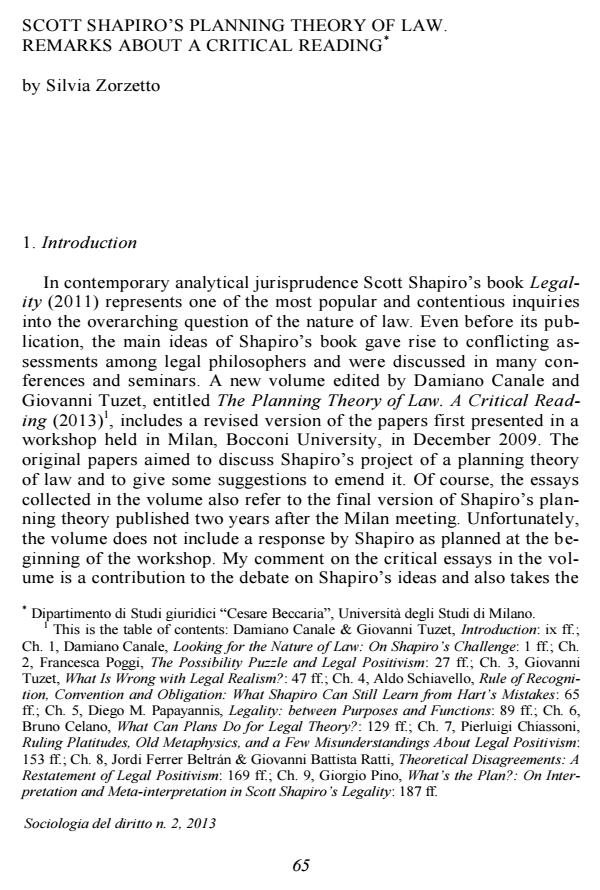Scott Shapiro’s planning theory of law. Remarks about a critical reading
Journal title SOCIOLOGIA DEL DIRITTO
Author/s Silvia Zorzetto
Publishing Year 2013 Issue 2013/2
Language English Pages 20 P. 65-84 File size 243 KB
DOI 10.3280/SD2013-002003
DOI is like a bar code for intellectual property: to have more infomation
click here
Below, you can see the article first page
If you want to buy this article in PDF format, you can do it, following the instructions to buy download credits

FrancoAngeli is member of Publishers International Linking Association, Inc (PILA), a not-for-profit association which run the CrossRef service enabling links to and from online scholarly content.
Nella filosofia del diritto contemporanea il libro Legality di Scott Shapiro rappresenta una delle ricerche più note e discusse sul tema onnicomprensivo della natura del diritto. Nel suo libro Shapiro risponde alla domanda "cos’è il diritto?" concependo il diritto come una speciale forma di pianificazione della vita associata. Il nuovo volume curato da D. Canale e G. Tuzet, intitolato The Planning Theory of Law. A Critical Reading (2013), include alcuni saggi di critica alla teoria di Shapiro . Il presente commento a tale raccolta di saggi critici vuole essere un contributo al dibattito sulle idee di Shapiro e un tentativo di colmare il salto che spesso esiste tra la teoria generale del diritto d’oltreoceano e continentale. Il commento evidenzia in modo particolare la dimensione teleologica e funzionale della Planning Theory of Law di Shapiro e propone di concepire tale teoria come una ricerca originale relativa agli aspetti fisiologici del diritto.
Keywords: Social Plans - Conceptual Analysis - Legal Positivism - Functionalism - Jurisprudence
Silvia Zorzetto, Scott Shapiro’s planning theory of law. Remarks about a critical reading in "SOCIOLOGIA DEL DIRITTO " 2/2013, pp 65-84, DOI: 10.3280/SD2013-002003